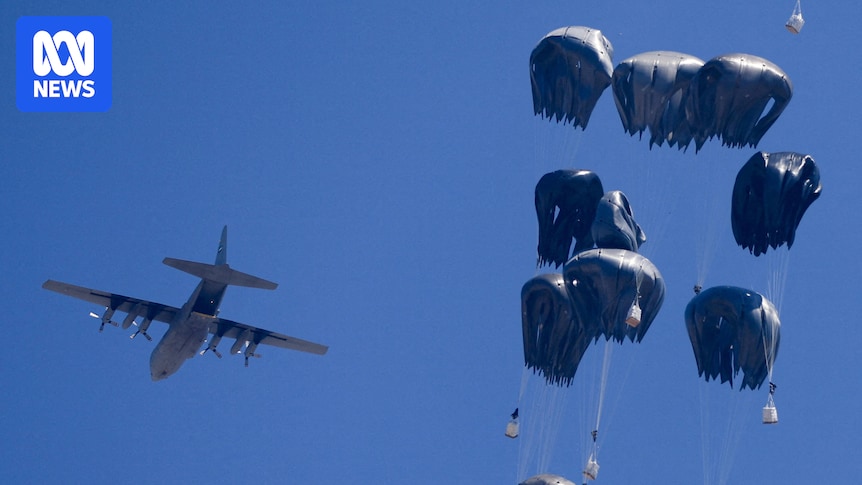
Israel has announced a “tactical pause” in its military operations in parts of the Gaza Strip, halting bombardments for 10 hours each day. This decision, effective immediately, comes in response to mounting international pressure to allow more humanitarian aid into the conflict-stricken region.
The Israel Defense Forces (IDF) confirmed that the pause will affect areas around Deir al Balah, Gaza City, and the Mawasi camp. The aim is to facilitate the delivery of aid to the beleaguered civilian population. The announcement follows a significant airdrop of 25 tonnes of aid by Jordan and the United Arab Emirates, marking their first such action in months.
According to a Jordanian official, the recent airdrops are not intended to replace land-based deliveries. The urgency of the situation is underscored by reports of 127 starvation-related deaths, including 85 children, in recent days.
Humanitarian Efforts Intensify
The Egyptian Red Crescent has also stepped up its efforts, dispatching over 100 trucks carrying more than 1,200 metric tonnes of food aid through the Kerem Shalom crossing. This initiative aims to address the dire needs of the growing population in Mawasi, which has seen an influx of displaced Palestinians.
“This decision was coordinated with the UN and international organizations following discussions regarding the matter,” the IDF stated. The temporary pauses will occur daily from 10 am to 8 pm, although military operations elsewhere in Gaza will continue.
Dire Conditions and International Response
Palestinian health authorities recently reported additional deaths from starvation, raising the toll to 127. Munir Al-Barsh, director-general of Gaza’s Ministry of Health, emphasized the critical nature of the situation, stating, “A humanitarian truce is not a time for silence, but rather for saving those who remain alive.”
“Every delay is measured by another funeral, and every silence means another child dying in its mother’s arms without medicine or milk,” Al-Barsh warned.
Al-Barsh called for urgent medical evacuations and the immediate delivery of essential supplies, including baby formula and antibiotics. Many Gazans have expressed cautious optimism about the IDF’s announcement, hoping it signals a step towards a more lasting peace.
“People are happy that large amounts of food aid will come into Gaza,” said Tamer Al-Burai, a local business owner. “We hope today marks a first step in ending this war that burned everything up.”
Controversy Over Airdrop Strategy
The IDF’s decision to implement airdrops has drawn criticism. The United Nations Relief and Works Agency (UNRWA) described the move as a “distraction,” emphasizing that “man-made hunger can only be addressed by political will.”
Philippe Lazarini, UNRWA’s commissioner-general, stated, “Airdrops will not prevent aid diversion, principled humanitarian assistance will… Driving aid through is much easier, more effective, faster, cheaper, and safer. It’s more dignified for the people of Gaza.”
Despite these criticisms, the IDF plans to establish “secure corridors” to facilitate the movement of aid from the border into Gaza. These corridors will operate from 6 am to 11 pm daily, aiming to ensure that aid reaches those in need more efficiently.
Looking Ahead
The current situation in Gaza remains precarious, with humanitarian needs escalating daily. The international community continues to call for a more sustainable solution to the crisis, urging all parties to prioritize the welfare of civilians.
As the tactical pause unfolds, the world watches closely, hoping for a resolution that will alleviate the suffering of those trapped in the conflict. Whether this pause will lead to more comprehensive peace efforts remains to be seen, but it is a crucial step in addressing the immediate humanitarian needs of the Gaza Strip.






